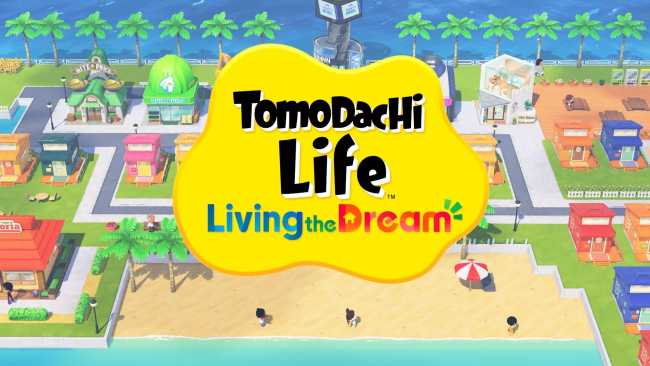Drawing ideas for when you're stuck for inspiration
Drawing ideas are a funny thing. You usually have loads of them when you don't have the time to explore them, but once you do finally have that luxury, you may end up drawing a blank.
To help you out with some drawing ideas, we spoke to a professional artists and illustrators, and asked them what they draw to relax, to practise and to stretch their creative muscles. We hope their suggestions will inspire you to forge your own drawing rituals, and get those creative juices flowing. For some more practical insight into drawing certain things, see our how to draw tutorials.
01. Start with eyes
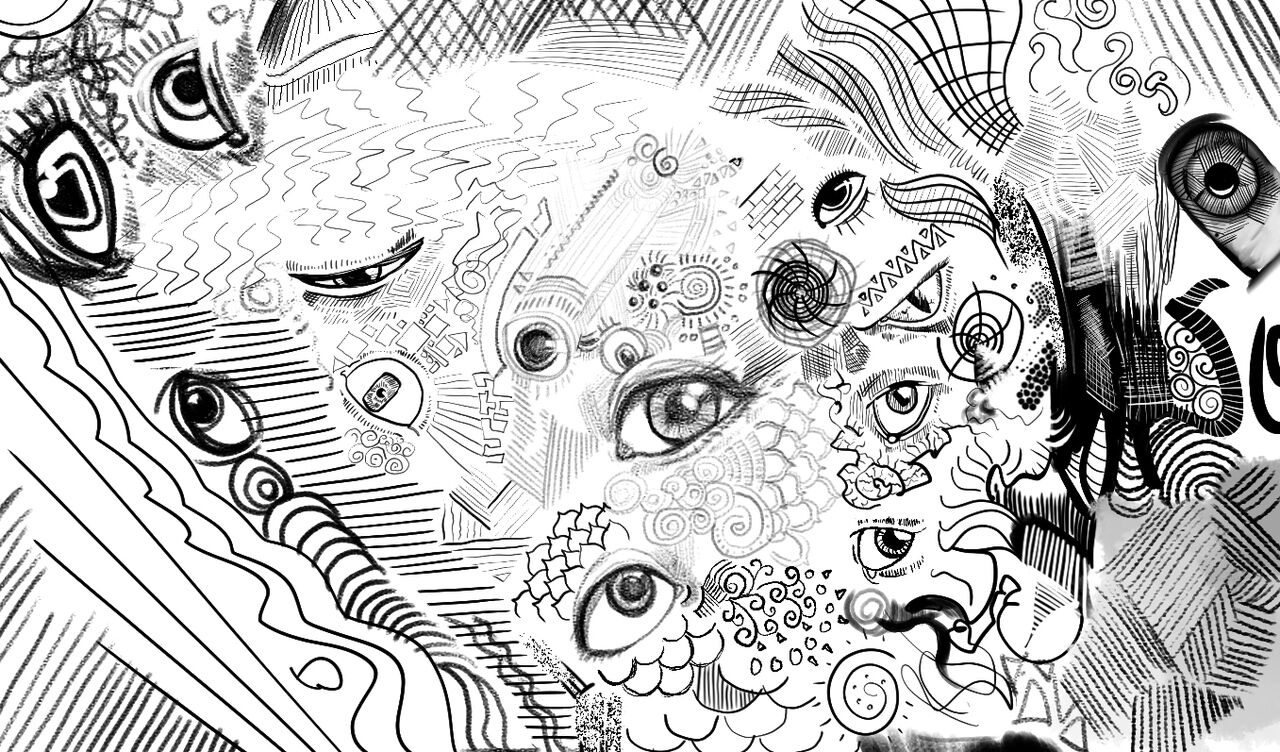
When artist and animator Chris McFall wants to get his creative juices flowing, he has a go-to drawing idea: eyes. Lots of eyes. "Then swirly bits. Then more eyes," he explains. "Essentially I’m just warming up, and getting used to the pen and paper’s absorbency, or the computer brush’s qualities. It’s a mark-making exercise, like a singer doing scales."
But why eyes specifically? "They’re just very expressive, and can be drawn in many styles, so you can employ lots of techniques," he reasons. "Also, they sit well at the centre of a mass of swirls cross hatches and scribbles."
It’s a ritual he’s employed successfully throughout his creative career. “I used to draw on the back of till receipts when I worked in Tesco,” he recalls, “so maybe it’s a habit from then."
02. Draw geometric blocks
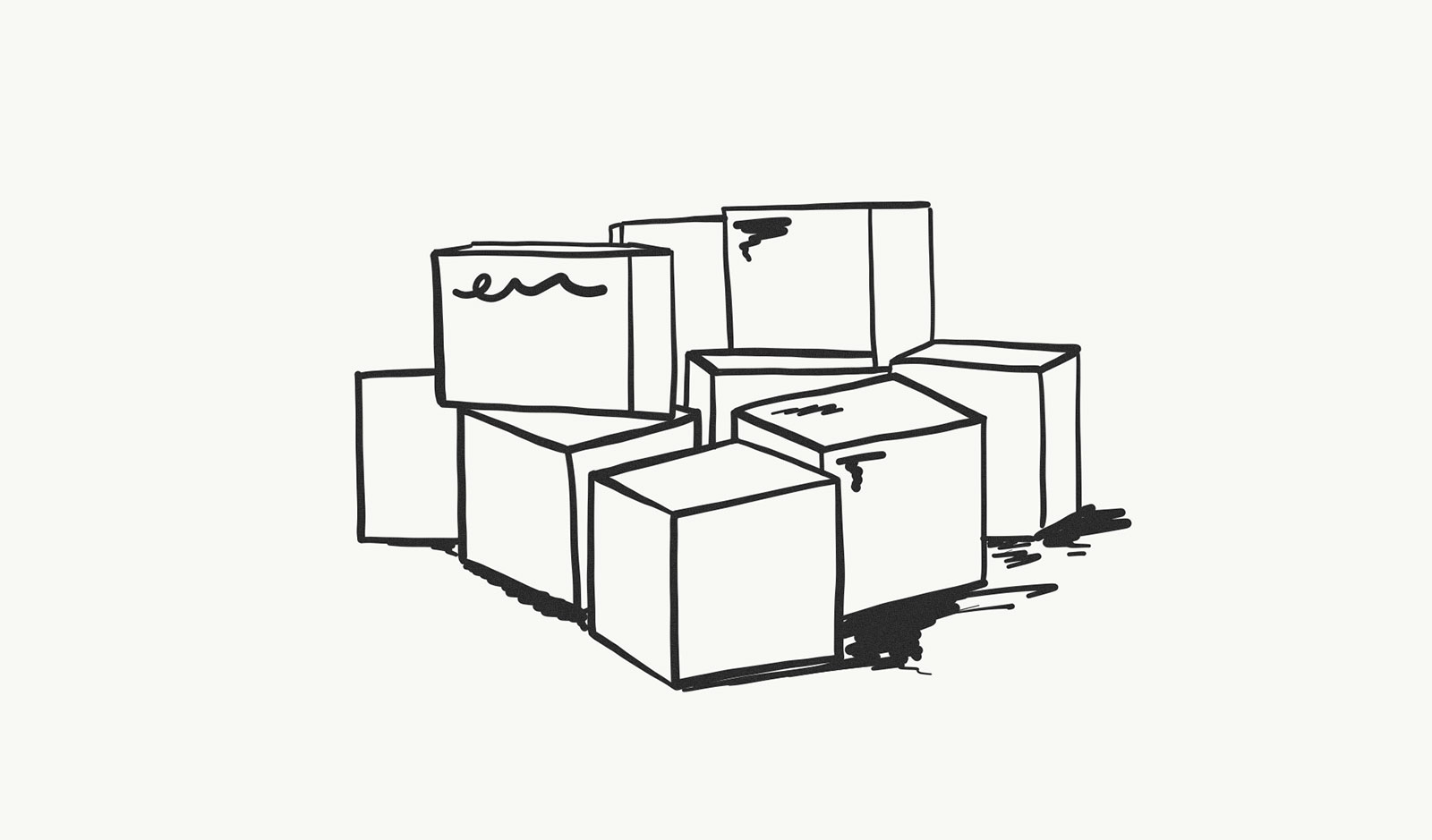
“I love drawing geometric blocks, stacked in numerous ways and perspectives,” says creative director James Oconnell. “It might sound strange, but it tends to stop me thinking about everything I've seen over the past few hours and allows me to think fresh thoughts when approaching new briefs.”
The idea came to him a year ago, he says. “I was feeling a little bit overwhelmed with workload and needed something to drive my attention elsewhere. I sat at an empty pad and started drawing shape after shape, ultimately ending with cubes.
Daily design news, reviews, how-tos and more, as picked by the editors.
“The process managed to eradicate the busy feeling and make me think more clearly,” he continues. “And the best part is, I can decide how much time I want to give it. It's like yoga for the mind.
“I always have a pen and pad at hand so can draw anywhere; both analogue and on the iPad. I always stumble across previous scribbles in my pad and they're a nice reminder to take personal time every now and again.”
03. Sketch faces
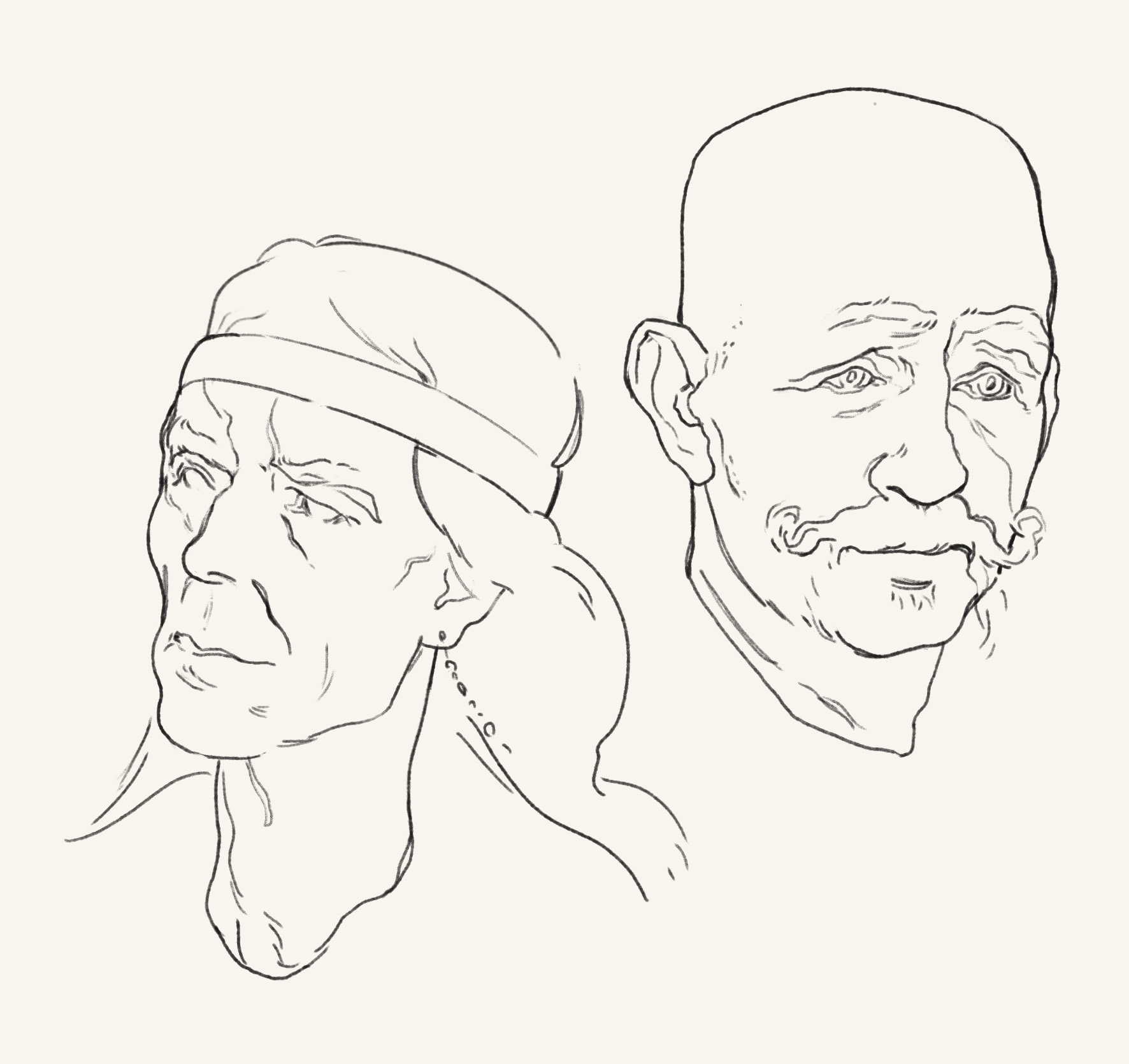
Concept artist and illustrator Olly Lawson shares the same drawing idea as many other artists, which is sketching faces.
“It's usually heads of different physiognomies,” says Lawson, who typically works on his iPad using Procreate. “I try to think of interesting variations, rather than drawing the same faces too often. This feels like a practice that has endless possibilities and fascination for me, especially when drawing faces from characters in a story I'm reading.”
He usually draws from reference. “So it's a case of finding or shooting references that look interesting and different to the generic head I might otherwise draw,” he explains. "Saying that, I do try to use the reference only vaguely; taking a chin from here, a nose from there. The fun for me is always in the challenge, so I never like to draw things I'm too comfortable with already."
The key to drawing faces, he believes lies in “understanding the underlying skeleton and how it can vary, and knowing how the muscles build upon that. Without that solid foundation underneath, your faces or figures can quickly become ‘uncanny’. You can learn this through good figure drawing textbooks like Drawing Heads and Hands by Andrew Loomis, or the Anatomy4Sculptors books.”
Also read: The best figure drawing books
04. Create a still-life
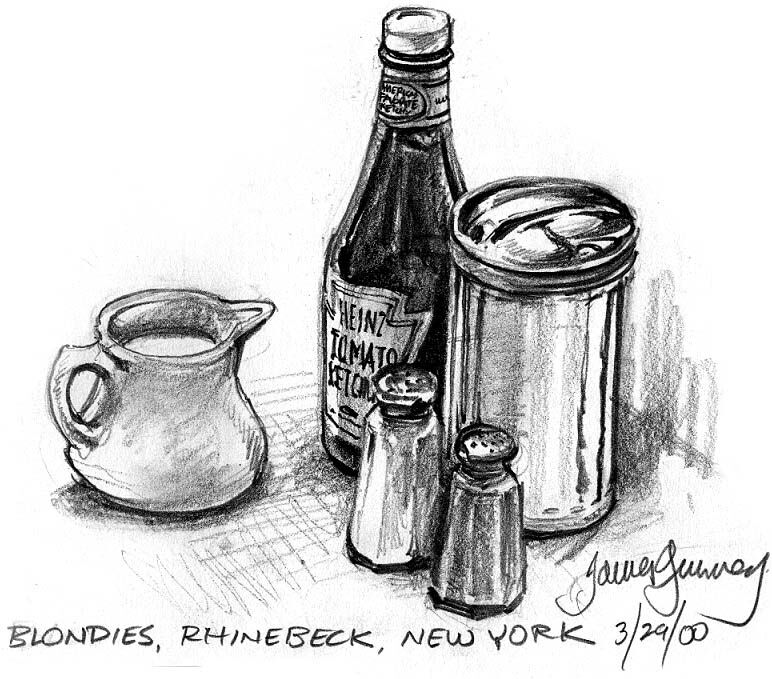
"When you're eating out, the time you spend waiting for your food is a great opportunity to get creative," says artist and best-selling author James Gurney.
“Diner still life is my favourite thing to draw to get my mojo on,” he says. “With the variety of surfaces, such as chrome, glass and paper, it has all sorts of reflective and refractive qualities, which transfer to my imaginative work. Plus I'm working with a time limit, as it only takes them 15 minutes to bring the scrambled eggs.”
This involves a combination of drawing and painting in a Pentalic watercolour sketchbook. “I start with water-soluble coloured pencils, and add washes of watercolour and gouache, often with a limited palette. I generally add final accents and written notes with a fountain pen filled with brown ink, and sometimes I come back into it with the coloured pencils, or even chalk.
“With the matte surface of gouache, you can draw over it and get the best of all worlds,” he continues. “This combination of tools allows the linear marks that the pencils can provide, as well as the accurate values and light effects that you can get with paint. Also, unlike oils, this technique is unobtrusive, has no odour, is small enough to fit on a diner table, and is fast.”
05. Sketch flowers and grass
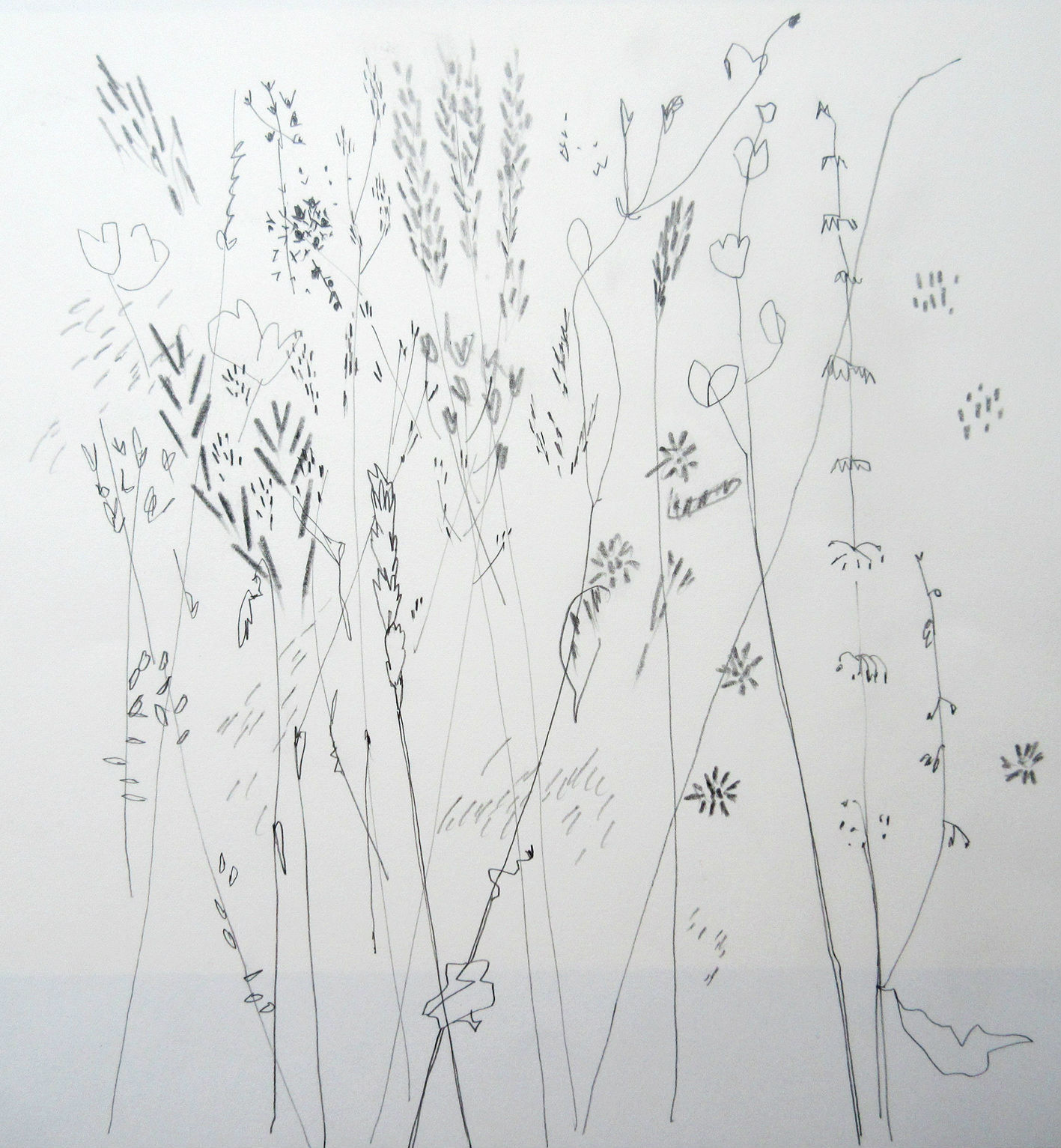
Printmaker and pattern designer Kate Farley likes to unwind by drawing flowers and grass. “It keeps the hand and eyes ticking over, with no pressure to use the drawings commercially if I don't want to,” she explains. “Plus it’s an excuse to buy myself flowers!
“I think of myself as a nature-lover and gardener so it’s a subject I relate to,” she continues. “I’ll use a variety of pencils, in terms of both hardness and size.”
And her advice for anyone with the same drawing ideas as her is as follows. “Think of drawing as getting to know someone," she recommends. "Ask polite, broad questions first to get to know them; quick sketches. Over time you get more involved and know it more so you can get more detail: longer complex studies.”
06. Draw passers-by
Each time you walk down the street, you’re presented with dozens of potential drawing ideas. So why not take advantage? That’s just what art director and illustrator Mademoiselle Camille does.
“Sometimes I see people whose face or clothing style I’d like to remember, so I draw them,” she explains. “I have a real fascination for portraits and smiling people, which is visible in my work. And so sketching them is a way for me both to practise my art skills, and to draw on the people as an inspiration for later.
“I have a good memory, so it’s pretty easy,” continues Camille, who sketches with pencils, colour pencils, and sometimes a ballpoint pen and coloured paper. “I pay a lot of attention to detail, although sometimes in a drawing you don’t need everything to be precisely detailed: just an accessory or object can be enough.”
Note that due to current lockdown restrictions around the world, you may have to rely on drawing people from memory.
07. Draw life models
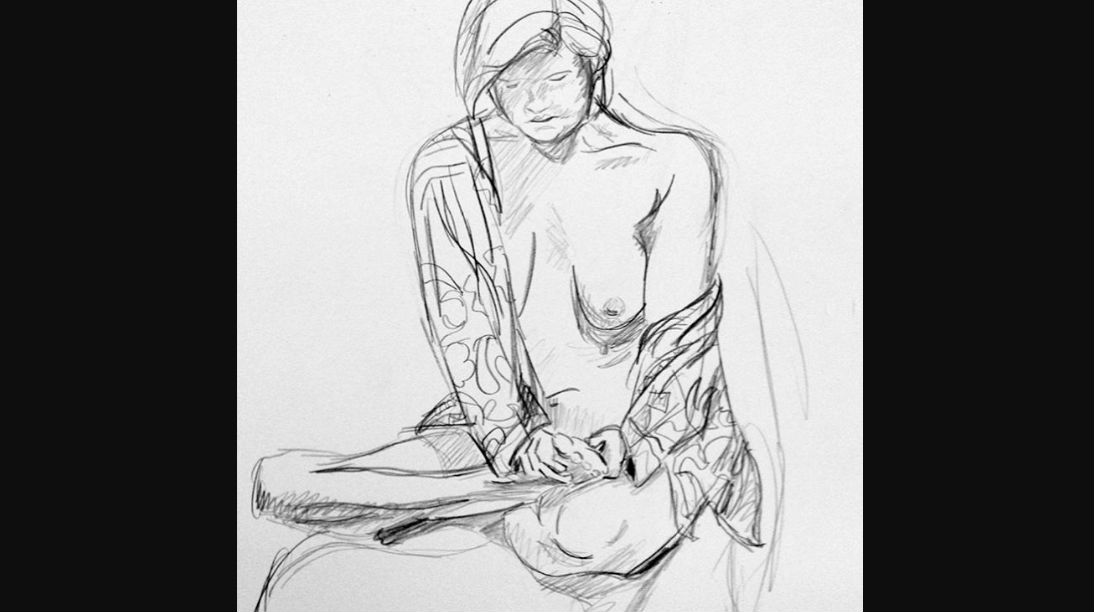
Whether you’re a beginner or seasoned professional, nothing beats a good session of life drawing to reinvigorate your understanding of the fundamentals and reboot your love of art.
“When I have time, there are several drop-in figure drawing sessions here in Chicago,” says lettering artist and illustrator Judith Mayer.
“I love drawing likenesses and figures for the challenge of it,” she explains. “You know right away if a person isn't recognisable or the proportion is off, and then you have to figure out how to make it right. And drawing in a group, either in a room or online, changes the solitary experience of being an artist into a more social one.”
Today, these classes may have to be virtual, but you can still do life drawing.
08. Red carpet looks
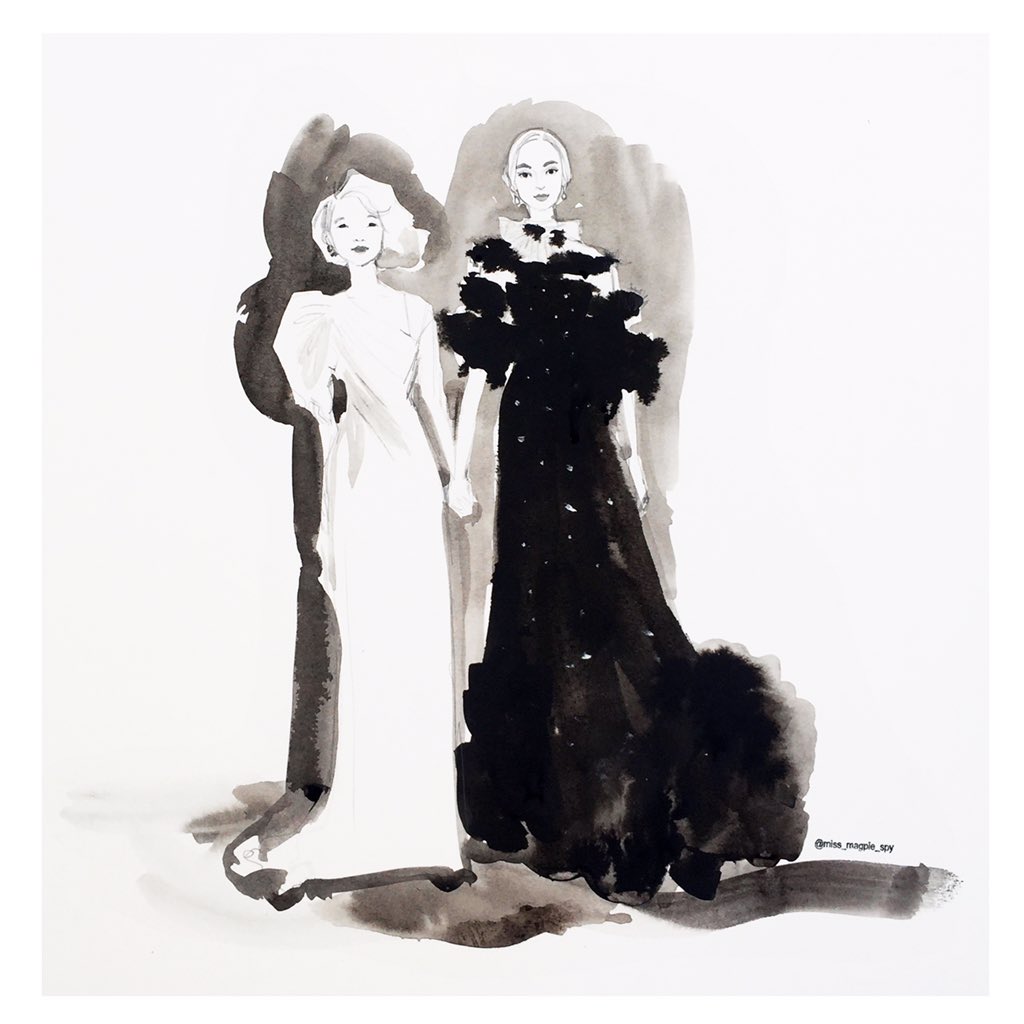
When fashion, beauty, food and lifestyle illustrator Niki Groom (aka Miss Magpie) wants to draw for fun, she has a very specific go-to drawing idea. “I love to do quick response fashion illustrations of red carpet looks,” she enthuses. “I rarely get commissioned for this type of work but I enjoy it, and it’s a great warm-up. I see them on Instagram and then illustrate them, either immediately or within a couple of days.”
The media she uses will depend mostly on what client work she’s currently immersed in. “If I’ve done loads of detailed pen work, as I have done recently, then I’ll use a paintbrush and ink. If I’ve been doing lots of painting then I’ll use marker pens.”
She’ll usually spend anything from 10 minutes to 45 minutes on these sketches. “I just do it because I almost need to get it out of my system,” she stresses. “There’s no strategy behind it, it’s just a love of clothing and fashion. It’s a scratch I have to itch, and a good way of having a rest from what’s been my day-to-day. I’d recommend to others to do work that they are passionate about, rather than doing something for a social media high.”
09. Make fan art
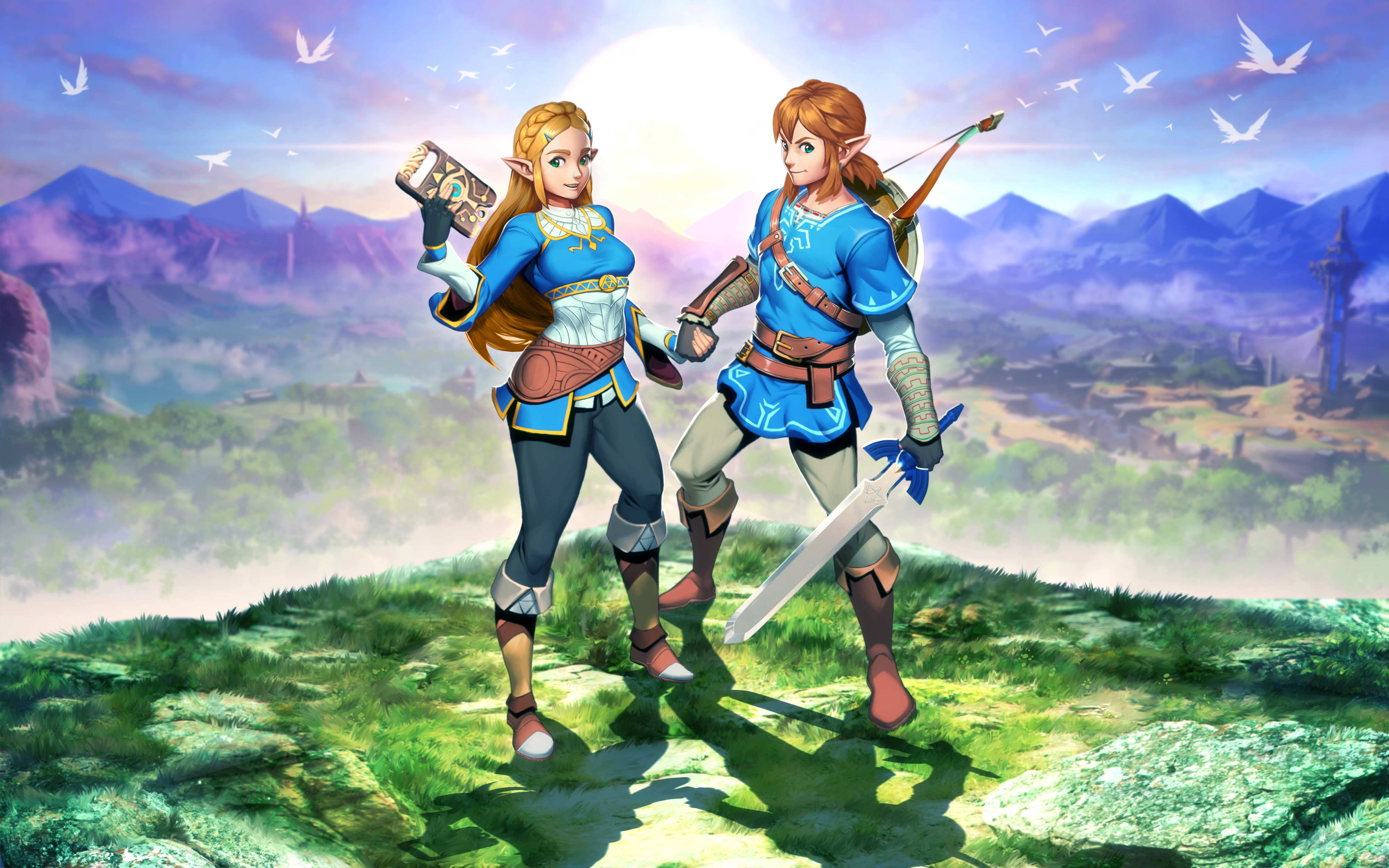
Gonzalo Ordoñez (aka Genzoman) is an artist working for the games industry on big-name titles. But a constant diet of corporate work isn’t ideal, so he likes to break things up with fan art.
“Between projects, I usually take a break to draw my own things,” he explains. “One of my favourite subjects is a character from a movie, video game or comic, or whatever has captured my attention; either by design (because I like the universe) or simply because I like the character.
“Many people see fan art as a waste of time,” he says. “But it helps me to practise my style, helping me to understand how to adapt it to other IPs, or to find an unusual twist on it, such as if a character is technological, retro-steampunk, or so on.”
10. Look for community suggestions
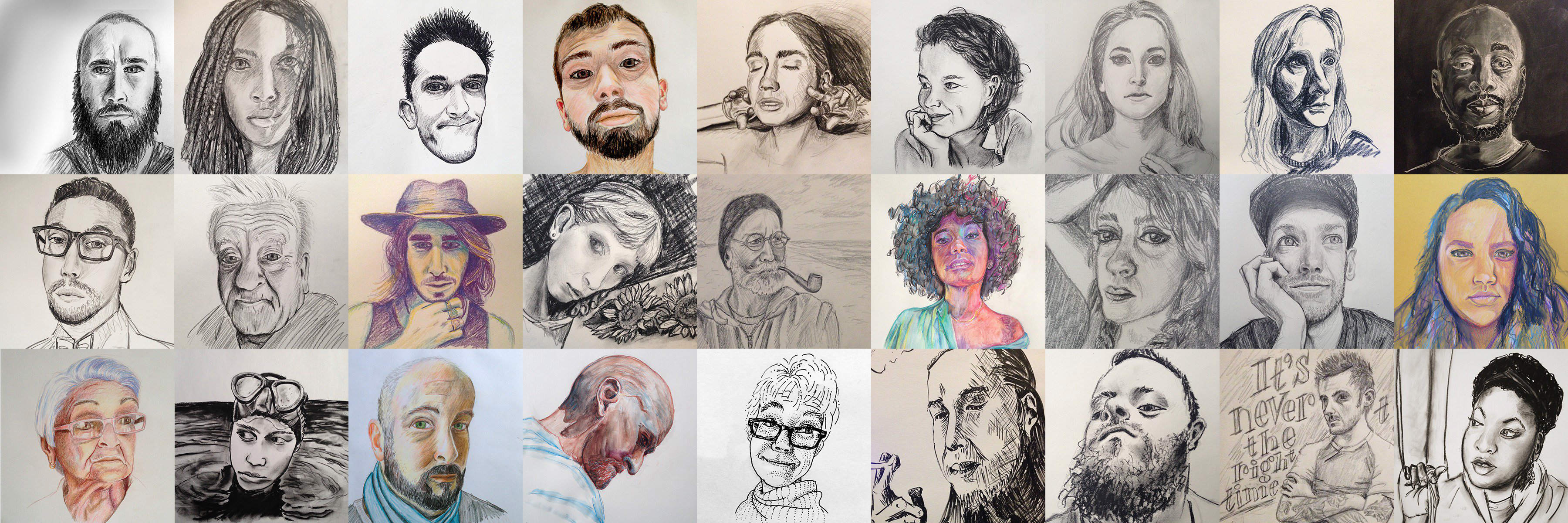
Still stuck for drawing ideas? Why not exploit the collective imagination of the numerous creative groups across the web?
“If I can't think of what to draw. I'll head to a prompt list online,” says Judith Mayer. “There's the popular #inktober list every October, for example. “#Folktaleweek is another online challenge. Plus this year the illustration collective I'm in, @CrushIllustration, decided we wanted to create our own October prompt list, and shared it on Instagram as #crushtober. Having everyone draw along with you is fun and motivational.
“Because I like to draw likenesses," she adds, "I've also used the free app Sktchy on my iPhone, where people upload photos of themselves hoping an artist will draw them. It’s great for practising portrait drawing. They offer inexpensive classes for daily drawing too.”
Concept artist Jourdan Tuffan takes a similar approach in leaning on the web to provide inspiration. "If I'm at a loss of what to draw, I usually resort to browsing Pinterest," he says. "The assortment of different subject matters and cool ideas usually give me enough fuel to spark an idea in my brain."
Given the nature of his work, architecture is the subject matter he usually defaults to. "But I have been doing quite a lot of face studies in a bid to improve on my anatomy skills," he adds. "It's good to keep a 'To Draw' and a 'To Learn' list handy as well, to serve as a helpful reminder of what to do next, and spend less time thinking, and more time drawing."
It's good to push your boundaries, agrees Polish manga illustrator Larienne Chan. "I love drawing things for fun that I haven't drawn before," she says. "Small challenges can keep you curious and motivated. It is good to change pace every now and then, try different topics or media. I particularly enjoy doing goofy representations of myself dealing with stuff. I don't share these drawings online, but they spark a lot of laughter with close friends, who'll often do their own versions, and we'll send stuff back and forth."
Read more:

Tom May is an award-winning journalist specialising in art, design, photography and technology. His latest book, The 50 Greatest Designers (Arcturus Publishing), was published this June. He's also author of Great TED Talks: Creativity (Pavilion Books). Tom was previously editor of Professional Photography magazine, associate editor at Creative Bloq, and deputy editor at net magazine.
